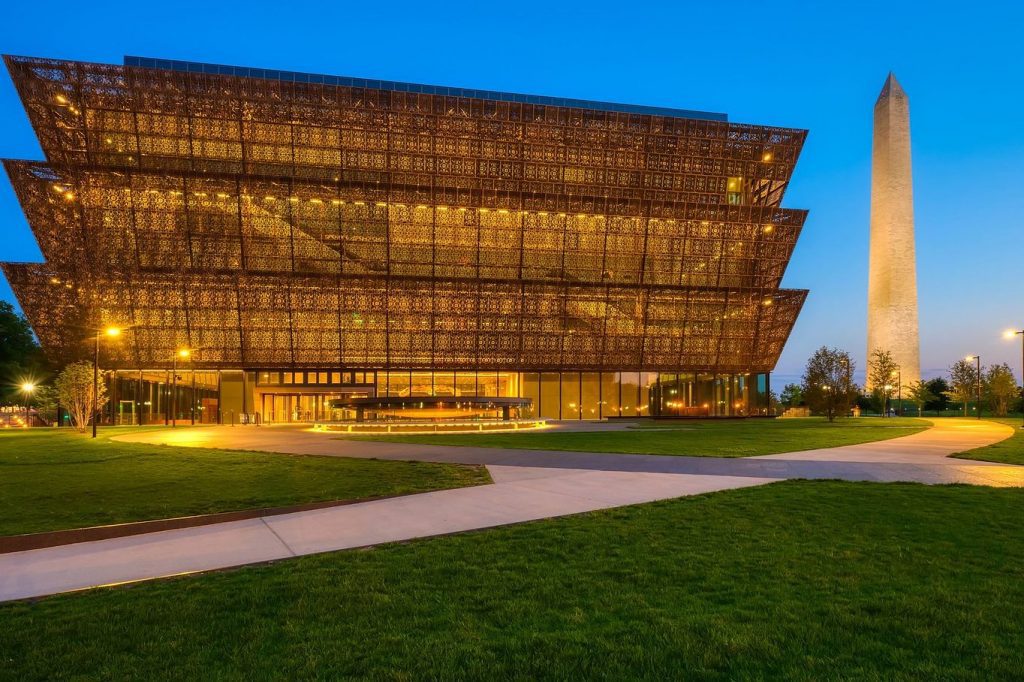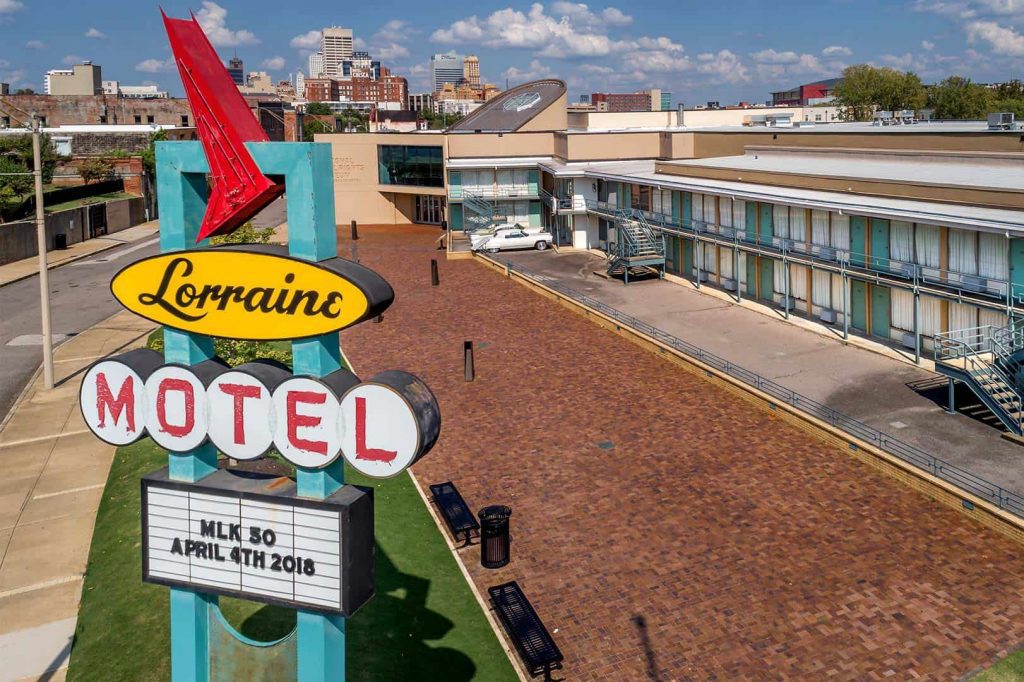Skift Take
The pandemic has made fundraising for museums all the harder in such tough economic times. But nearly five months after the killing of George Floyd and a summer filled with promises, Black tourism attractions are still waiting for more than lip service.
Many companies this summer joined the Black Lives Matter activism wave penning tweets, Facebook posts, and informative press releases denouncing racism at the height of protests. Yet, for many critics, the surge of corporate activism was nothing short of performative lip service.
Now, nearly five months after the killing of George Floyd, Black history and cultural institutions in the United States that draw tourists from all over the globe say the support from donations has been anything but consistent.
It’s unfortunate, particularly since Covid-19 has put museums and arts groups into perilous financial straits. Advocates argue the viability of those Black-focused institutions are more important now than ever before.
Impactful activism hinges on painting a fuller picture of American history and honoring the Black contribution to the American social fabric, says tourism officials.
“One of the biggest issues we see right now is the misinformation and miseducation of non-minority populations,” Brigette Jones, curator of social history at the Tennessee State Museum, told Skift.
“When you look at our erasure from history, from the literary movement, the classical music movement, and then you add physical erasure with what you see from the police — what you see is America’s true relationship with Black Americans — and it’s that of a stepchild.”
Companies need to see the greater value in these investments. “Our hope is that more corporations value preservation as equity, and invest more in preserving the Black experience, “ Lawana Holland-Moore, associate program officer at the African American Cultural Heritage Action Fund, told Skift.
To be sure, the recent outpour of donations tied to international demonstrations against police brutality encouraged several major corporations to financially show up for institutions in the tourism sector that are ensuring that Black history is recorded.
The Memphis Rock ‘n’ Soul Museum confirmed to Skift that it’s received financial support mainly from locals such as $85,000 from musician Mike Curb and the Mike Curb Foundation and $30,000 from Shelby County, Tennessee, which donated cash in exchange for free student entry until December.
What’s more, the Museum of Contemporary African Diasporan Art, or MoCADA, in Brooklyn, New York, said that Mailchimp recently donated $20,000 in honor of Black Lives Matter, and AT&T $25,000, but didn’t specifically earmark it for BLM.
The National Museum of African American History and Culture reported receiving donations from Amazon, and United Airlines pre-pandemic, but not in recent times.
United told Skift, however, that while it hasn’t made any new commitments, it’s committed to longstanding partnerships with the National Museum for African American Culture and History, Tuskegee Next, and The Ensemble Theatre.
While Covid-19 slowed down the National Civil Rights Museum‘s multi-year relationship with Southwest Airlines, the protests brought in significant donations from individuals. Faith Morris, chief marketing and external affairs officer at the museum, said it also received a “sizable” contribution from Apple following the death of the late Senator John Lewis. FedEx donated too, and promoted the museum at its Nascar sponsorship this year. Morris did not respond when asked about the amounts of the donations.
A Delta spokesperson told Skift that “despite the impact of Covid-19,” it’ll continue to honor pre-pandemic funding commitments to sites such as the Martin Luther King Jr. National Historic Park and the National Center for Civil and Human Rights.
In Denver, at the Black American West Museum, Chairperson Daphne Rice-Allen said the museum didn’t receive any corporate donations. She noted that in her city one hand washes the other. This is particularly true for smaller art spaces that can’t compete with world-renowned institutions or that haven’t been privileged with the spotlight. Applying for grants and funding, for those that can’t hold exhibitions online or host in-person or digital events, accessing grants and other donations is fiercely competitive, she said. In Colorado, the art community is saving itself.
“Corporations are probably trying to deal with their own BLM internal issues, so the art industry — just like the tourism industry, is probably going to have to support itself in terms of social justice,” Rice-Allen told Skift.
Indeed, companies are scrambling to successfully address the hypocrisy between public rhetoric in favor of Black lives and a mismatched internal company structures that are both harmful and not supportive of Black employees, raising concerns with consumers outside the scope of donations.
In travel, influencers and bloggers are demanding equity.
“We are trying to hold travel brands accountable for their lack of diversity and representation,” Tomiko Harvey, director of collaborations and partnerships at the Black Travel Alliance, told Skift. “Especially when it comes to press trips featuring Black content creators and paying travel content creators equally.”
This diversity issue has prompted most airlines to focus on reconsidering internal protocols and putting money into pipeline programs.
Delta CEO Ed Bastian recently acknowledged the company’s lack of diversity and in a memo detailed a six-pronged strategy to challenge that. United Airlines recently announced it’s adding a second Black board member. Southwest, Alaska, and American airlines have all followed suit, showcasing new recruiting and leadership models. JetBlue told Skift the company’s foundation is doubling down on supporting diversity in STEM.
Uber, however, has found a happy medium. The ridesharing company told Skift it’s donated to the Equal Justice Initiative, a non-profit committed to ending mass incarceration, and home to the Legacy Museum and The National Memorial for Peace and Justice, and to the Center for Policing Equity.
“We are still in communication with both non-profits about how we can continue to deepen our partnerships beyond the initial donations,” Uber spokeswoman Lois Van Der Laan told Skift. “And how we can incorporate these partnerships across the rest of our racial justice commitments.”
From the consumer standpoint, investing in Black history preservation should be a no-brainer.
A 2018 Mandala Research study claims that African Americans contribute a whopping $63 billion to the American travel and tourism economy and are more likely to travel to a location connected to their heritage. It states African American history also attracts all cultural travelers such as Germans, Japanese, and other American travelers.
The Daily Newsletter
Our daily coverage of the global travel industry. Written by editors and analysts from across Skift’s brands.
Have a confidential tip for Skift? Get in touch
Tags: black lives matter, black travel, tourism
Photo credit: The National Museum of African American History in Washington, DC, are among the Black museums still waiting to see a greater response in corporate giving. Brook-Ward / Brook-Ward on Visual Hunt

